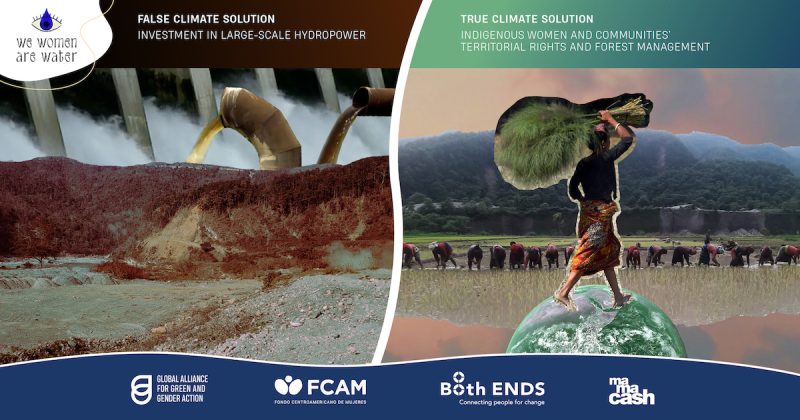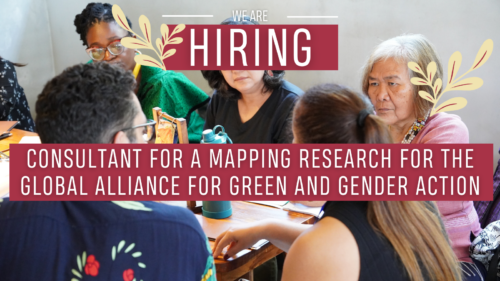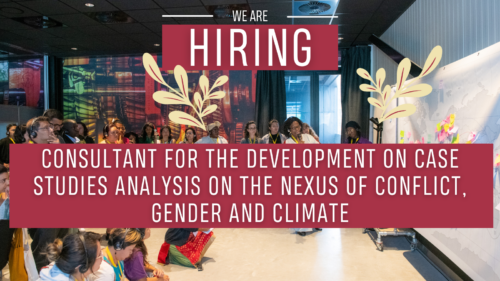Indigenous knowledge to mitigate climate change impacts – Nepal

My name is Purna Kumari Magar and I’m part of the Magar Indigenous community in Nepal. As part of this community, my life depends on land and other natural resources, such as the Seti river. However, with the Tanahu hydropower project, our way of life is under threat. The project, financed by the Asian Development Bank, the European Investment Bank and the Japan International Cooperation Agency is expected to make 60% of the Magar residents lose their farmland, 11.000 trees and nine cremation sites. It is threatening our homes, governance rights and access to resources. Most of us were not even consulted which means that it is a violation of our rights as indigenous people to give free, prior and informed consent to a project that affects our territories.
The hydropower project is a false climate solution since it is a significant source of methane amongst other greenhouse gases. It also exposes us to greater vulnerability to the climate crisis impacts, such as floods and droughts, making it risky and unreliable. On the other hand, If the river’s natural ecosystem was allowed to naturally thrive it would produce all kinds of climatic benefits, such as carbon mitigation and a healthier water cycle.
As Magar people we have a symbiotic relationship with nature, we only take what we need. We carry and pass on traditional ecological knowledge related to collective forest and river conservation for generations. We women from the Magar community plant broom grass along steep hills and sandy banks to prevent soil erosion and landslides, retaining soil nutrients to regrow vegetation and improving water quality and availability. Removing us from this land will impact our ability to pass down this knowledge to future generations in order to mitigate and adapt to the climate crisis. Forests and as a result water resources will be saved if indigenous land rights are respected.
We call on the Asian Development Bank, European Investment Bank, Japan International Cooperation Agency and governments to stop funding hydropower projects in our territory. They contribute to the climate crisis and violate indigenous rights. Funding need to be redirected to the real gender-just climate solutions being implemented by us, women and girls of the Magar indigenous community.
–
INWOLAG was established by women lawyers from Nepal’s Indigenous community and provides advocacy, livelihood support and legal services to survivors of gender-based violence. In 2015 INWOLAG became aware of how the Magar Indigenous community will be affected by the Tanahu hydropower project and started raising awareness of the project’s negative impacts. INWOLAG builds the capacity of the community and local women so they can advocate for the community’s rights. It also supports the community in filing complaints with independent watchdogs of the ADB and EIB. INWOLAG is a grantee partner of the women’s funds Tewa and Mama Cash, which are both part of the Global Alliance for Green and Gender Action. You can follow INWOLAG’s work here and find out more in the links below.

We Are HIRING: Consultant for a Mapping Research for the Global Alliance for Green and Gender Action
The Global Alliance for Green and Gender Action (GAGGA) is seeking a consultant to conduct Mapping Research aimed at identifying…

We Are HIRING: Consultant for the development on Case Studies Analysis on the nexus of Conflict, Gender and Climate
The Global Alliance for Green and Gender Action (GAGGA) is seeking a consultant to develop case studies and analysis on…

Report: Seeds for Harvest – Funding for Gender, Climate, and Environmental Justice
The world has drastically changed in recent years, from the COVID-19 pandemic and ongoing conflicts to the rise of authoritarianism…
Subscribe to our newsletter
Sign up and keep up to date with our network's collective fight for a gender and environmentally just world.
